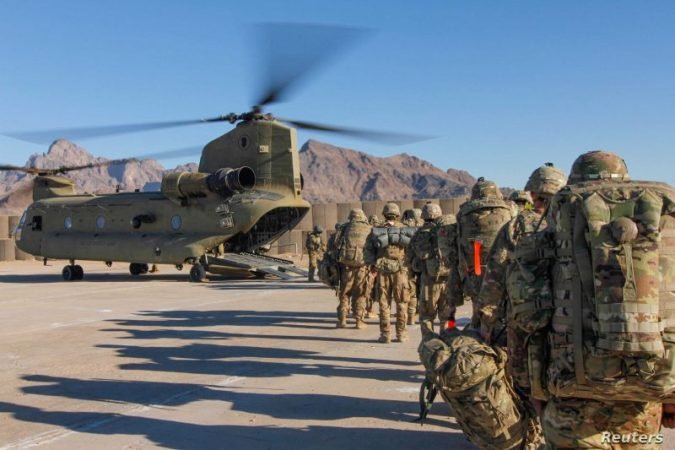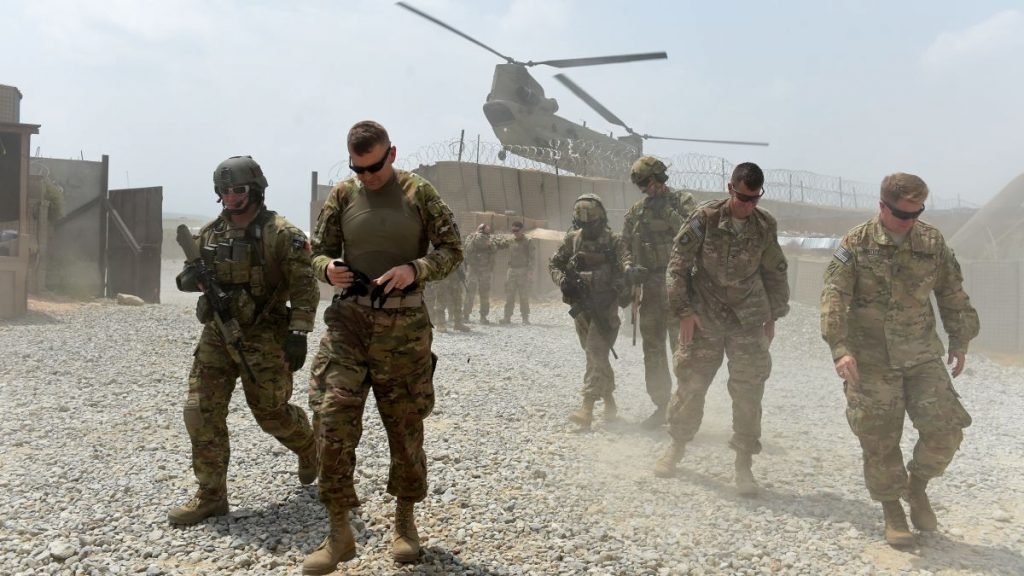U.S. exit from Afghanistan and the looming future ahead

The United States is all set to complete the withdrawal of all its troops by September 11 to end its twenty years of military presence in Afghanistan. A peace agreement, signed between the U.S. government and the Taliban on 29th Feb 2020, announced 1st of May as the timeline for the withdrawal of U.S. forces and their NATO partners from Afghanistan. Under the agreement, U.S. agreed to phase drawdown of U.S. troops and its complete withdrawal within fourteen months in exchange for a Taliban commitment to abstain from terrorism and start intra-afghan negotiation.
President Biden declares that the United States will not meet the deadline set under the U.S.-Taliban agreement to withdraw all troops by May 1 and instead releases a plan for a complete withdrawal. Under which, all military forces to be out by September 11, the twentieth commemoration of the al-Qaeda assaults on Washington and New York that started the US-drove attack of Afghanistan in 2001. Also, the withdrawal would not be condition-based.
In the month following the signing of the Trump administration peace deal with the Taliban, the insurgent group augmented its onslaught on American Afghan allies to higher than usual levels, according to data provided to the Pentagons Special Inspector General for Afghanistan Reconstruction. Taliban has failed to meet the prerequisites of the peace agreement by relentless attacks on the Afghans and failing to cut ties with Al-Qaeda and other extremist entities. In its 2020 report, the UN Taliban monitoring team said that the Taliban still shares strong ties with al-Qaeda.

Due to the surge in violence and stalled peace talks between the warring parties, U.S. Secretary of State Antony Blinken proposed a UN based conference to discuss a unified approach to support peace in Afghanistan. Later, the conference was postponed indefinitely over the Taliban’s no-show. The Istanbul International conference was essential to beef up the peace talks between the parties. The sole objective of the Istanbul conference was to speed up the ongoing intra-Afghan negotiations. Intra-Afghan peace negotiations officially commenced in Doha, Qatar, in September 2020, an outcome of an agreement signed between the Taliban and the U.S. in February last year. The suspension of peace talks shows fundamental uncertainty over the future course of peace negotiations and unaddressed questions on power-sharing.
Intra-Afghans negotiations accommodating power-sharing following the U.S. and NATO Troops withdrawal will be fraught for various foundational anomalies. Firstly, these discussions will require engagement on principles, including deeply held beliefs on the nature of Islamic governance and democracy.
Secondly, there exists a foremost issue in power-sharing. The Taliban have said that they need an Islamic government. The Kabul position is that Afghanistan must remain an Islamic republic, in which the legitimacy of the government gets derived from the consent of the government through universal suffrage. And fundamental rights are enshrined and protected by International law and norms, as the current Afghan constitution recognizes.
Taliban, an ultraconservative political and religious faction, came to power in 1996 amid a power struggle for territorial control following Soviet withdrawal in 1989 and ruled Afghanistan until the U.S.-led invasion in 2001. They also curtailed their freedom of religion and enforced its strict interpretation of Islamic law, violation of which would result in public executions and floggings. An uprising of Taliban insurgence could once again turn Afghanistan into a terrorist safe haven.

Afghan women and girls’ decades of gains are at serious risk of being distorted with the complete withdrawal of international troops from Afghanistan. Women and girls were the most afflicted section due to the long history of civil war, violence, economic crisis and unstable political situation. The freedom and rights of women were crippled to a great extent when the Taliban, a fundamentalist religious force, took a dominant position in society. They were denied access to education and had limited access to healthcare. These restrictions still unfailingly apply to women in areas controlled by the Taliban. Yamini Mishra, Director of Amnesty International, said, “the forthcoming withdrawal of international troops may impel Afghanistan to take a retrogressive turn towards an outcome that will imperil the twenty years of progress achieved by women and girls.”
Conclusion
The speedy withdrawal of the U.S. and NATO by September 11 may unleash chaos as peace talks between the Kabul and Taliban continue to be a fiasco. The United States exit will not only downplay the gravity of the conflict but would also result in plummeting the international community’s attention for Afghanistan.



















